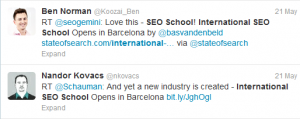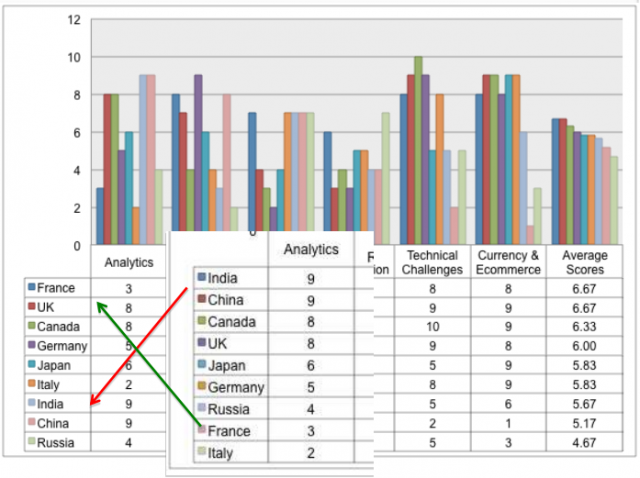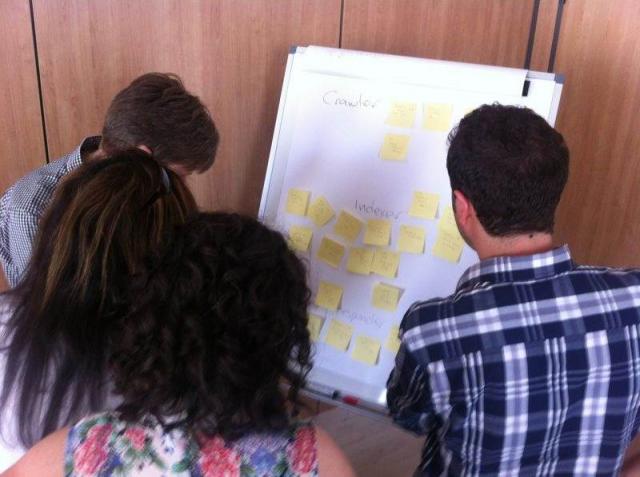After being introduced for the first time at the International Search Summit in London earlier this month, there have been many positive reactions to the launch of the International SEO School.
The new initiative by WebCertain kicked off last week in Barcelona, and I was lucky enough to form part of the 3-day course which provided an extensive view into the international search and social landscape. As opposed to many conferences, when having a maximum of 12 delegates, this allows for engagement in a way that goes far beyond that of larger summits and expositions.
In this regard, most presentations were followed up with Q&As, exercises and educational business games to give delegates hands-on experience on some of the tools and processes introduced, thus making it all a lot easier to grasp.
The Starting Point…
One of the biggest mistakes corporations make when entering new markets is assuming that products and services, as well as the accompanying marketing communications strategies, can be replicated across different markets.
There are two important — and very contradictory — words in that previous sentence: replicate and different. Despite the obvious logic that entering new/different markets should always take into consideration local customs, surprisingly many companies operate by the assumption that if it worked in one market, it’s likely to work in others as well.
The problem here doesn’t seem to be blistering ignorance of existing cultural differences; rather replication is often a case of taking the easy way out simply because it takes less effort and, at first sight, seems to be more cost-effective. Well, either way it’s not the right way to move forward.
This is not saying, however, that replication can never be the right solution. If your country-specific market research points to the direction that only small, relatively insignificant differences exist, then go for it!
Based on this foundation, the course was divided into three main areas of importance to international SEOs:
- Culture & Content
- Compatibility
- Connections & Conversions
Culture & Content – Day 1
Where to next? In continuation of the aforementioned, making the right roll-out choices must take into account multiple components. Being introduced to a market roll-out scorecard, delegates were provided with a practical step-by-step guide to comparing different markets on a wide range of metrics influencing on market entry attractiveness. This was followed by presentations on keyword research and SEO-localisation and content strategies.
Compatibility – Day 2
Having the right content displayed to the right people at the right time is the aim of any marketing activity. Relating to international search, succeeding in this area is a rather complicated matter and something which many multinational corporations struggle with. This day included everything from presentations on geo-targeting and language management to an educational business game where delegates had to build their own search engine. Google, Baidu and the likes probably wouldn’t have been blown away with the initial proposals, but eventually we managed to find a consensus after intense discussions and disagreements.
Connections & Conversions – Day 3
Links still very much matter to SEO despite the gloomy forecasts given by some, however, connections encompass the new reality better with social increasingly impacting on rankings. In this regard, the third and last day was dedicated to the importance of links and social, as well as how to convert and measure conversions in a global environment.
Again, through a balanced blend of presentations, exercises and interactive discussion sessions, this proved a new and exciting way of educating yourself in the field of international SEO.
Secure your spot at the next International SEO School in Barcelona from 18-22 June here.











